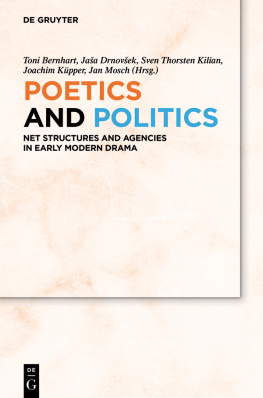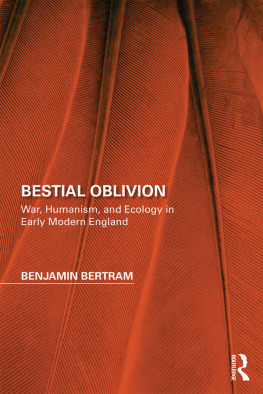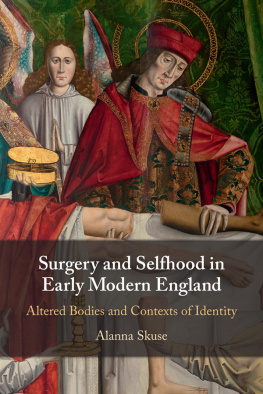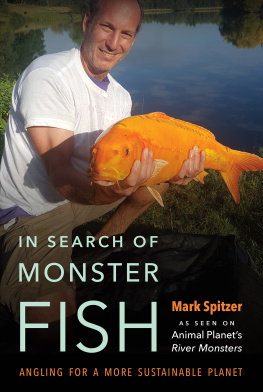The Poetics of Angling in Early Modern England
Myra E. Wright takes ecocritical studies on an interdisciplinary turn toward the water with her new research monograph, The Poetics of Angling in Early Modern England. Identifying the lively presence of both literal and metaphorical images of sportfishing in all kinds of early modern writing, this book identifies a deep sympathy between the art of angling and the art of writing, and examines the centrality of fish in early modern conceptions of humanity.
Myra E. Wright is a Lecturer in English at Bates College, Maine.
Perspectives on the Non-Human in Literature and Culture
Series Editor: Karen Raber, University of Mississippi, USA
Literary and cultural criticism has ventured into a brave new world in recent decades: posthumanism, ecocriticism, critical animal studies, Object-Oriented Ontology, the new vitalism, Actor-Network Theory, and other related approaches have transformed the critical environment, reinvigorating our encounters with familiar texts, and inviting us to take note of new or neglected ones. A vast array of non-human creatures, things, and forces are now emerging as important agents in their own right. Inspired by human concern for an ailing planet, ecocriticism has grappled with the question of how important works of art can be to the preservation of something we have traditionally called nature. Yet literatures capacity to take us on unexpected journeys through the networks of affiliation and affinity we share with the earth on which we dwelland without which we dieand to confront us with the drama of our common struggle to survive and thrive has not diminished in the face of what Lyn White Jr. called our ecological crisis. Animals have crept, slithered, trotted, swum and flown away from their customary function as metaphors, emblems, or analogies; now they populate critical analysis in increasingly complex ways, always in tension with our sense of what it means to be human, or whether it is even possible to claim such a category of life exists. Posthumanism, which often shares terrain with ecocriticism and animal studies, has further complicated our conception of the cosmos by dethroning the individual subject and dismantling the comfortable categories through which we have interpreted our existence: we find our selves colonized by microbial beings, occupied and enhanced by mechanical inventions and contraptions, traversed by invisible forces from atmospheric changes to radiation, made vulnerable to our planets sufferings, and inspired by its capacity for renewal. New materialism, new vitalism and all the permutations of theory that have evolved and are evolving to account for our entanglements with lively matter have ensured, however, that our displacement from the center of creation feels less like a demotion than a happy event: from our previous occupation of the impoverished, isolated space atop the mountain of creation, we might instead descend into the fecund plenitude of kinship with all things.
Until now, however, the elements that compose this wave of scholarship on non-human entities have had no place to gather, no home that would nurture them as a collective project. Perspectives on the Non-Human in Literature and Culture provides that structure, giving critical treatments of all kinds of non-humans and humans a local habitation. In this series, readers and fellow critics will find animals of all descriptions, but also every other form of biological life; they will meet the non-biological, the microscopic, the ethereal, the intangible. It is our goal for the series to provide an encounter zone where all forms of human engagement with the non-human in all periods and national literatures can be explored, and where the discoveries that result can speak to one another, as well as to readers and students.
Birds and Other Creatures in Renaissance Literature
Shakespeare, Descartes, and Animal Studies
Rebecca Ann Bach
Race Matters, Animal Matters
Fugitive Humanism in African America, 18381934
Lindgren Johnson
Plants in Contemporary Poetry
Ecocriticism and the Botanical Imagination
John Charles Ryan
Meteorology and Physiology in Early Modern Culture
Earthquakes, Human Identity, and Textual Representation
Rebecca Totaro
Novel Creatures
Animal Life and the New Millennium
Hilary Thompson
Bestial Oblivion
War, Humanism, and Ecology in Early Modern England
Benjamin Bertram
Stages of Transmutation
Science Fiction, Biology, and Environmental Posthumanism
Tom Idema
ThePoetics of Angling in Early Modern England
Myra E. Wright
Victorians and Their Animals
Beast on a Leash
Brenda Ayres
The Poetics of Angling in Early Modern England
Myra E. Wright

First published 2019
by Routledge
52 Vanderbilt Avenue, New York, NY 10017
and by Routledge
2 Park Square, Milton Park, Abingdon, Oxon OX14 4RN
Routledge is an imprint of the Taylor & Francis Group, an informa business
2019 Taylor & Francis
The right of Myra E. Wright to be identified as author of this work has been asserted by her in accordance with sections 77 and 78 of the Copyright, Designs and Patents Act 1988.
All rights reserved. No part of this book may be reprinted or reproduced or utilised in any form or by any electronic, mechanical, or other means, now known or hereafter invented, including photocopying and recording, or in any information storage or retrieval system, without permission in writing from the publishers.
Trademark notice: Product or corporate names may be trademarks or registered trademarks, and are used only for identification and explanation without intent to infringe.
Library of Congress Cataloging in Publication Data
A catalog record for this book has been requested
ISBN: 978-1-138-30460-4 (hbk)
ISBN: 978-0-203-73001-0 (ebk)
Typeset in Sabon
by Out of House Publishing
To the lakes and rivers of my youth, and all the creatures who splash, swim and drift in those cold waters
Contents
Many people have helped me bring this book to completion. Vin Nardizzi offered essential guidance at the earliest stages. Karen Raber, as series editor, has shown her typical generosity and enthusiasm. Jennifer Abbott, at Taylor & Francis, has been a patient editor and guide as Ive worked on this first book. The anonymous readers who reviewed samples of the project provided invaluable ideas for improvement. I thank Isabel Stein for her patience and thoroughness as copy editor. My colleagues at Queens College, CUNY, gave their time and attention to a portion of this work in a faculty seminar. Im especially grateful for the feedback of Steven Kruger, Glenn Burger, Hugh English, Gloria Fisk, Ryan Black, Richard McCoy, and Andrea Walkden. Three fellow teachers at Queens offered the kind of support that can come only from dear friends: Nicole Zeftel, Dara Barnat, and Meghan Fox. Christi Spain-Savage and Alena Buis have made me a better scholar with their good humor and eagerness to collaborate.
Over the past few years, meetings of the Shakespeare Association of America (SAA) have presented opportunities for me to share my work in seminars. I thank the gracious and thoughtful organizers of these: Miriam Jacobson and Wendy Hyman (Words and Things), Patricia Badir (Shakespearean Horizons), Vin Nardizzi (Histories of Sustainability), Suparna Roychoudhury and Mary Crane (Cognition in the Early Modern Period), and Matthew Hunter and Sam Fallon (Early Modern Cultures of Taste). Im also indebted to my fellow seminar participants who have responded directly to parts of this projectespecially Nicholas Helms, Douglas Clark, Amanda Lehr, Simon Smith, Anna-Claire Simpson, Jeffrey Theis, and Rob Wakeman. Im grateful to the SAA for the contingent faculty grant that funded my attendance in 2016, and Id like to thank the organization as a whole for the nursery of ideas it provides every year.







